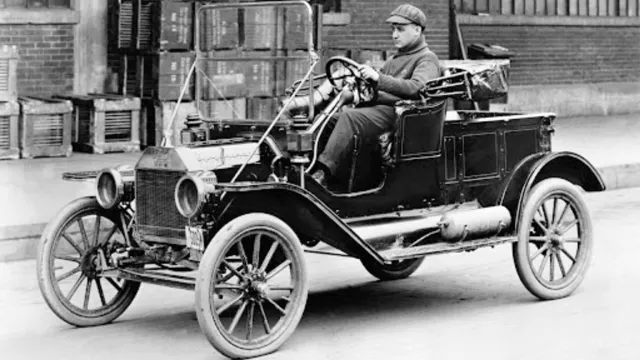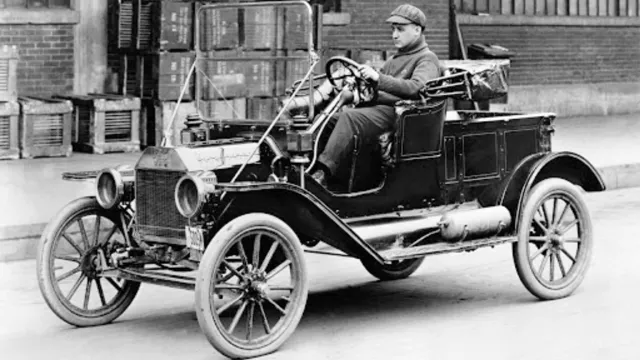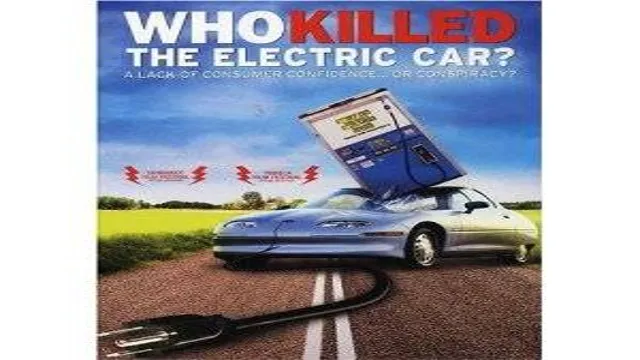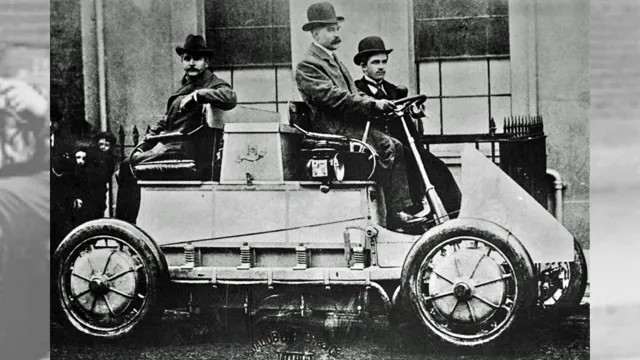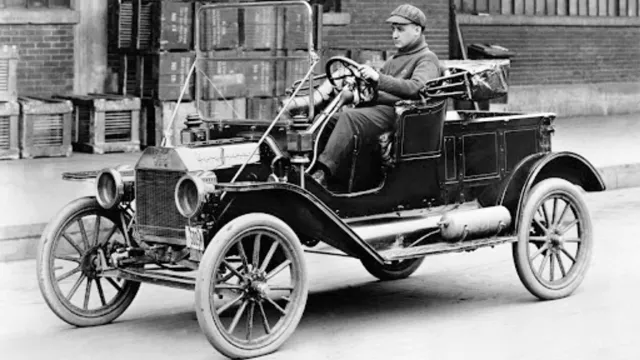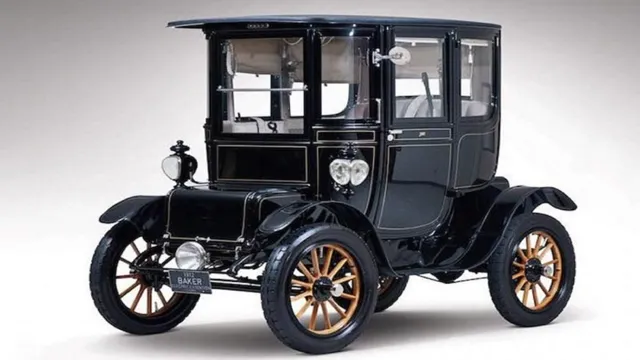The Electrifying Evolution of Chevy’s Electric Cars: A Fascinating Slice of Automotive History
Looking back, it’s hard to imagine a time when driving an electric car was anything but a possibility. But it wasn’t too long ago that electric vehicles were seen as a fleeting novelty, something that belonged to the future instead of the present. So it might surprise you to learn that Chevrolet has actually been producing electric cars for over two decades.
That’s right, electric cars from Chevy existed long before the Chevy Bolt. In fact, the history of Chevy electric cars dates all the way back to the 1990s. So let’s take a look back at the milestones and challenges that have marked Chevy’s journey towards electric domination.
Early Beginnings
Chevy’s history with electric cars dates all the way back to the 1960s, when they first experimented with electric vehicles as part of a government program that aimed to reduce pollution in urban areas. While these early cars had limited range and performance, they served as a foundation for the company’s later efforts in the field. In the late 90s, Chevy released the EV1, a fully electric car that boasted a range of up to 140 miles.
Despite being popular with early adopters, the EV1 was ultimately discontinued due to a lack of demand and concerns over its safety. Nevertheless, Chevy continued to develop hybrid and electric technologies, culminating in the release of the Volt in 201 The Volt was an innovative plug-in hybrid that combined the benefits of electric and gasoline power, and helped to establish Chevy as a leader in the electric car industry.
Today, Chevy offers a range of electric and hybrid vehicles, including the Bolt and the Spark EV, and is committed to promoting sustainability and reducing its carbon footprint through its products.
Development of the EV1
The development of the EV1 began in the early 1990s when General Motors realized the future was going to be electric. They set out to create a car that was unlike anything currently on the market. The engineers at GM spent countless hours researching and developing new technologies to make the EV1 a reality.
They focused on creating a car that was both efficient and practical, with a range that would allow it to be used by everyday drivers. The first prototypes of the EV1 were produced in 1996, and the car quickly caught the attention of the public. With its sleek design and advanced electric motor, the EV1 was ahead of its time.
The early beginnings of the EV1 set the stage for a revolution in the automotive industry, one that we continue to see today. Despite its eventual discontinuation, the legacy of the EV1 lives on, and its impact on the electric car market cannot be understated.
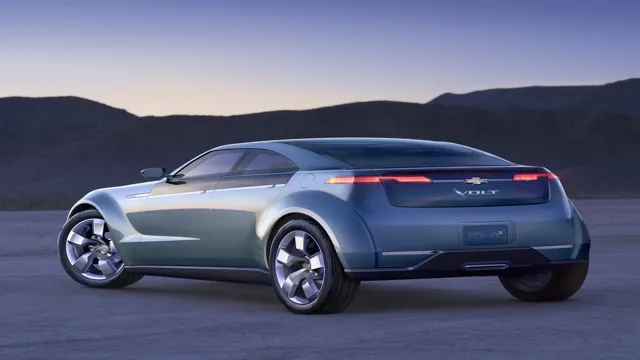
Discontinuation and Criticisms
Discontinuation and Criticisms of any product or service can create significant impact on its user base and market performance. The early beginnings of such discontinuation or criticism can often be traced back to the origins and development of the product or service. In the case of early social media platforms, many did not have a clear vision or understanding of how to balance user privacy and monetization strategies.
This lack of foresight led to numerous controversies and scandals, such as the Cambridge Analytica scandal which directly questioned Facebook’s handling of user data. As a result, users became increasingly skeptical and critical of the platform’s actions, leading to widespread calls for regulation and alternative platforms such as Twitter and Instagram steadily gaining ground. The key lesson to learn here is that user trust and transparency should be at the forefront of any product or service development, and companies should be prepared to adapt and evolve to meet changing user needs and expectations.
Revival of Chevy Electric Cars
Chevy has a long-standing history with electric cars, dating back to the 1990s when they first introduced the EV Unfortunately, the production of this revolutionary vehicle was short-lived, and it was eventually discontinued. However, in recent years, Chevy has made a comeback in the electric car market with the introduction of their Bolt EV and Volt models.
These cars have been popular due to their impressive range and affordability. Plus, with the increasing demand for electric vehicles, Chevy is poised to be a strong contender in the industry. The brand has continued to innovate with their electric cars, offering features like regenerative braking and a mobile app that allows for remote vehicle starting and monitoring.
It’s clear that Chevy is committed to the future of electric cars and is making great strides to stay ahead of the game.
Introduction of the Volt
The Chevy Volt was introduced in 2011 as a major milestone in General Motors’ electric car production. It stood out as a unique vehicle that could drive on electricity for an extended period while having the backup of a gasoline range extender. The Volt became the first-ever plug-in hybrid car on the market, which made it a notable technological achievement.
Its introduction kicked off the revival of Chevy Electric Cars. In line with GM’s commitment to a future with fuel-efficient and clean vehicles, Chevy’s Electric Cars have gradually become popular among eco-conscious consumers. The Volt was a breakthrough moment for the company’s electric car enterprise, leading to the production of other advanced models like the Chevy Bolt EV and the Chevy Spark EV.
These cars offer varied options for customers who want to make greener transport choices. Overall, Chevy’s introduction of the Volt positively impacted the electric car market and inspired the development of other innovative electric cars in the industry.
Switch to All-Electric with the Bolt
The Chevy Bolt is a game-changer in the world of all-electric cars. With a range of up to 259 miles on a single charge, the Bolt is a practical choice for daily commuting and longer road trips. This electric car accelerates quickly and smoothly, and even has a low center of gravity for a more stable ride.
The Bolt is also packed with advanced technology, such as a large touchscreen display, a rearview camera, and a range of safety features. Choosing the Bolt means not only reducing your carbon footprint, but also saving money in the long run with lower fuel and maintenance costs. The revival of Chevy electric cars shows that sustainable transportation is becoming more mainstream and accessible for everyone.
Current Offerings and Future Plans
Chevy electric cars are making a comeback! With the increasing demand for eco-friendly vehicles, GM, the parent company of Chevrolet, has announced that they will be bringing back the Bolt EV and introducing the all-new Bolt EUV. The Bolt EV, which was first introduced in 2017, offers a range of up to 259 miles and can charge up to 100 miles in just 30 minutes using DC Fast Charging. The Bolt EUV, on the other hand, is a slightly larger version of the Bolt EV and features GM’s Super Cruise technology, which allows for hands-free driving on highways.
Both the Bolt EV and Bolt EUV come with a price tag that is affordable for many, making eco-friendly driving accessible to more people. In addition to these current offerings, GM has also announced plans to introduce 30 new electric vehicles by 2025, indicating their commitment to electric mobility. It’s exciting to see Chevy stepping up their game in the electric vehicle market and offering quality, affordable options for those looking to go green.
Impact on the Automotive Industry
The history of Chevy electric cars has had a significant impact on the automotive industry as a whole. With the launch of the electric Volt in 2010, Chevy became one of the first major automakers to offer a vehicle with a plug-in hybrid system. This move helped push other manufacturers to develop their own electric or hybrid models, leading to a surge in sustainable transportation options.
Despite initial skepticism from some critics, the Chevy Volt and subsequent electric models have proven to be reliable and efficient while also helping to reduce the carbon footprint of drivers worldwide. Chevy’s commitment to electric technology continues today, with the recent introduction of the Bolt EV, which boasts an impressive range of over 200 miles on a single charge. As the industry continues to evolve, it’s clear that Chevy will remain a key player in the shift towards a more sustainable future.
Innovation and Influence on Competitors
Innovation in the automotive industry has always influenced its competitors. With every new development, a company has the chance to set itself apart and gain an advantage over others. Take Tesla, for example.
By introducing electric cars to the market and building a network of charging stations, it disrupted the norms of the traditional car industry. This forced other carmakers to adapt and create their own electric models. This innovation also brought about new competition from other technology companies that now see opportunities in the mobility space.
As a result, the automotive industry is becoming more competitive, with industry players constantly trying to out-innovate one another. This has resulted in the development of new and improved vehicle technologies that are more efficient, safer, and environmentally friendly. Consumers are the ultimate beneficiaries of this transformation, as they will gain access to more advanced and affordable cars.
The impact of innovation on the automotive industry is undeniable, and the competition spurred by it has driven the industry forward, leading to significant advances in technology and consumer choice.
Environmental Impact and Sustainability
The automotive industry is a major contributor to environmental degradation and unsustainable practices. One of the biggest impacts on the environment is vehicle emissions, which release harmful pollutants into the air and contribute to climate change. However, the industry has made strides in recent years to reduce its environmental footprint.
Many companies are investing in the development of electric and hybrid vehicles that emit fewer greenhouse gases and have better fuel efficiency. Additionally, there is a growing trend towards using sustainable materials in vehicle production, such as recycled plastics and renewable plant-based materials. While there is still a long way to go, the automotive industry is starting to address its impact on the environment and take steps towards sustainability.
By making conscious decisions, we can all contribute to a greener future, and the automotive industry has a vital role to play in this effort.
The Future of Chevy Electric Cars
Chevy electric car history is one that spans several years, dating back to the introduction of the Chevy Volt in 20 Since then, Chevy has continued to innovate and expand its electric vehicle lineup. The Chevy Bolt, introduced in 2017, offers an impressive range of 259 miles on a single charge and has been praised for its quick acceleration and spacious interior.
Looking ahead, Chevy has announced plans to launch more electric vehicles in the coming years, including an electric SUV and a redesigned Bolt set to debut in 202 With more and more consumers interested in electric vehicles, Chevy’s commitment to offering reliable and affordable options bodes well for the future of the brand.
Conclusion
And there you have it, folks! The electric car has come full circle with Chevy, from the very first electric carriages in the 1900s to the modern, sleek Bolt. It’s been a journey of innovation, experimentation, and adaptation, with Chevy leading the charge (pun intended) every step of the way. So, whether you’re looking for an eco-friendly ride or just a powerful, smooth vehicle, there’s no denying the rich history and promising future of the Chevy electric car.
“
FAQs
When did Chevy release their first electric car?
Chevy released their first electric car, the EV1, in 1996.
What was the range of the Chevy Bolt’s first model year?
The first model year of the Chevy Bolt had a range of 238 miles on a single charge.
How many electric cars has Chevy produced to date?
Chevy has produced four electric cars to date: the EV1, Spark EV, Volt, and Bolt.
What makes the Chevy Bolt’s battery system unique?
The Chevy Bolt’s battery system is unique for its use of pouch-style lithium-ion batteries, rather than the cylindrical cells used in previous Chevy electric cars. This design allows for better space utilization and a lighter overall battery pack.
How long does it take to charge the Chevy Bolt using a standard 120-volt household outlet?
It takes approximately 50 hours to fully charge a Chevy Bolt using a standard 120-volt household outlet, but this can be reduced to about 9.5 hours using a 240-volt charging station.
